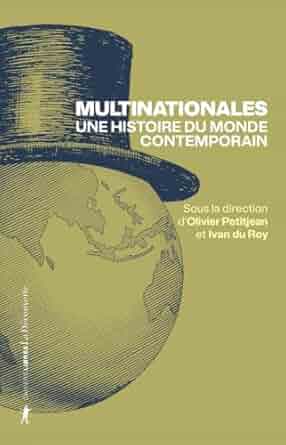Note by Florence Anglès
The book meticulously recounts and analyzes the history of multinationals since the 19th century. It is neither a diatribe nor a theoretical essay disconnected from reality. It’s a highly structured, well-documented read, aimed at interpreting a major phenomenon of today’s capitalism: the empowerment of private economic agents, who have gradually developed into de facto political agents with significant power but little democratic legitimacy.
The founding of the first multinational companies was preceded by two other major aspects of the global economy: firstly, formal colonialism (the opening up of vast parts of the world to non-indigenous occupation and colonization), and secondly, the numerous industrial revolutions. They were sustained by logics of extraction, supply and dependence. They became a cornerstone of Fordism and post-war reconstruction in the 20th century. However, from the 1980s onwards, they began to break free from national regulatory structures.
The deregulated and fragmented framework has enabled them not only to expand globally, but also to play by their own rules.
The power they wield takes many forms:
- competition between legislations (on taxation);with organized evasion;
- on standards, either by directly influencing laws, or by generating their own standards;
- around the environment, by delaying the application of regulations and promoting a discourse of responsibility and control.
“Multinationals don’t just adapt to the world order – they reshape it.
One of the book’s most important achievements is to link this economic trajectory to a political reading of power relations. Multinationals didn’t simply appear out of nowhere: they are the result of a history, a strategy, and a succession of opaque systems. The book’s revelation is an underlying coherence that we often see only in fragments, a silent renunciation of collective power in favor of unelected actors, exercising their power without a clear mandate, but effectively. This is a difficult read, but essential if you want to understand the true foundations of today’s economy.
Olivier Petitjean is a journalist and co-founder of the Observatoire des multinationales. He has worked for many years on issues of economic justice, corporate accountability, and environmental impact. He is also the author of several investigative reports on the role of major corporations in shaping public policy.
Ivan du Roy is a journalist, editor, and founder of Basta!, an independent media outlet focused on social, economic, and environmental issues. His work specializes in the critical analysis of economic policies, corporate power, and mechanisms of influence within democratic institutions.


